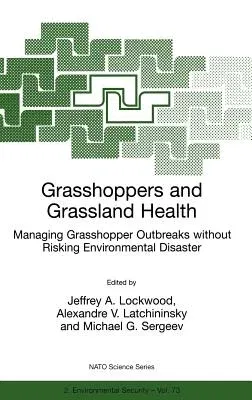Grasshoppers and Grassland Health: Managing Grasshopper Outbreaks Without Risking Environmental Disaster (2000)Hardcover - 2000, 30 September 2000

Qty
1
Turbo
Ships in 2 - 3 days
In Stock
Free Delivery
Cash on Delivery
15 Days
Free Returns
Secure Checkout

Part of Series
NATO Science Partnership Subseries: 2
Part of Series
NATO Science Partnership Sub-Series 2: Environmental Security
Part of Series
NATO Science Series. 2, Environmental Security
Part of Series
NATO Science Partnership Sub-Series: 2:
Print Length
221 pages
Language
English
Publisher
Springer
Date Published
30 Sep 2000
ISBN-10
0792365291
ISBN-13
9780792365297
Description
Product Details
Book Edition:
2000
Book Format:
Hardcover
Country of Origin:
US
Date Published:
30 September 2000
Dimensions:
23.39 x
15.6 x
1.42 cm
Genre:
Ecology
ISBN-10:
0792365291
ISBN-13:
9780792365297
Language:
English
Location:
Dordrecht
Pages:
221
Publisher:
Series:
Weight:
508.02 gm